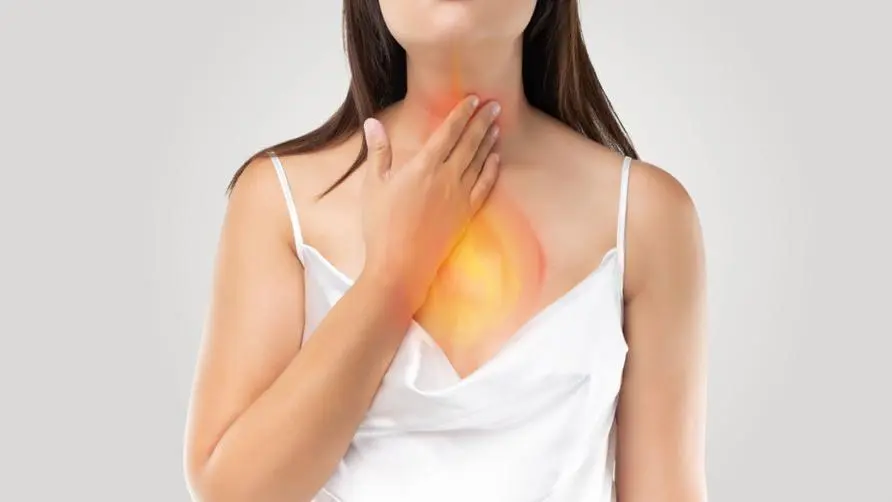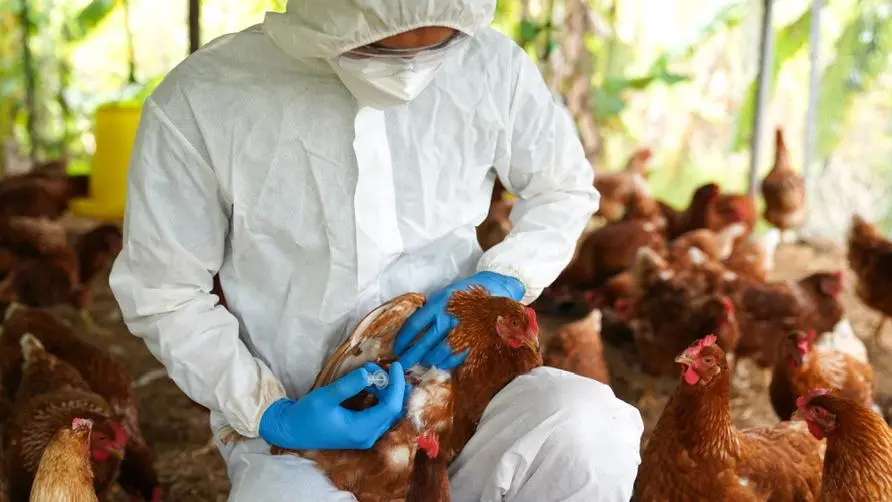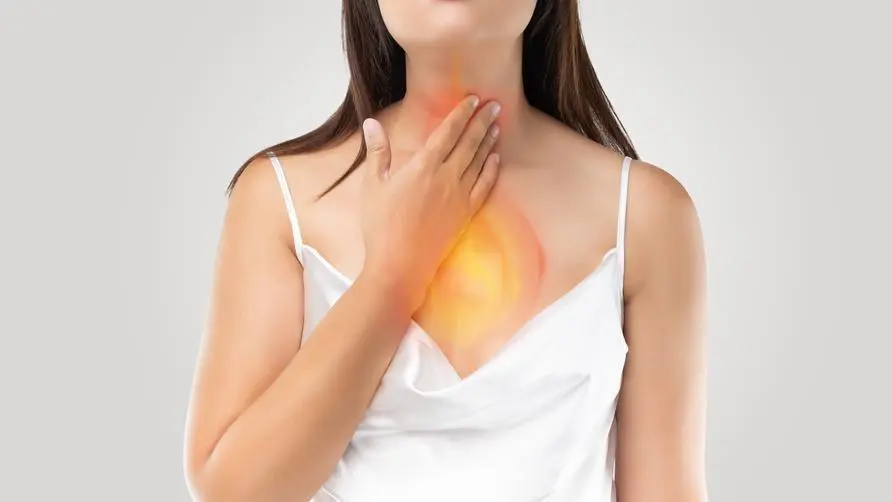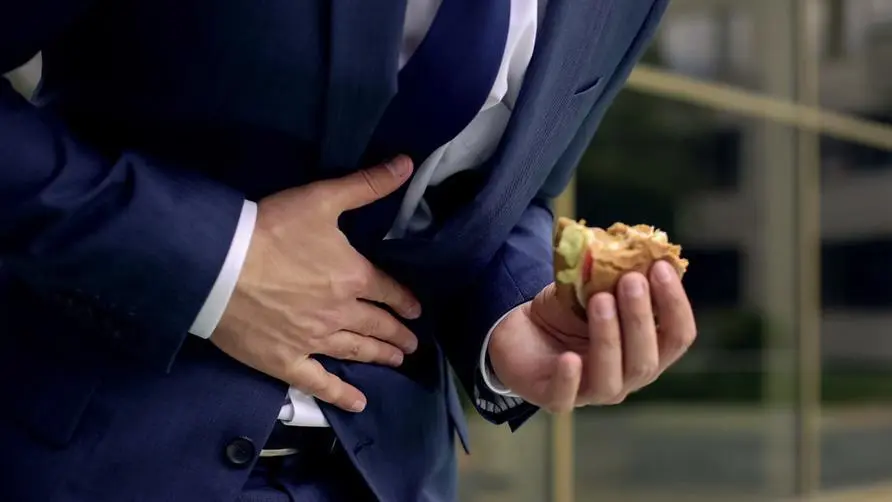The consequences of drinking coffee and eating sweets are not only gastroesophageal reflux! Doctors say you should be alert to the emergence of "1 disease": the risk of esophageal cancer may increase significantly

The famous advertisement “Drinking coffee and eating sweets will cause gastroesophageal reflux”. The simple and clear advertising slogan is deeply rooted in people’s hearts. Many Taiwanese people are indeed troubled by “heartburn” symptoms; according to statistics, the prevalence rate of gastroesophageal reflux in Taiwan is about 5%-24.6%, which means that almost 1 in 4 people suffer from gastroesophageal reflux, and Cases are increasing year by year.
He finally recovered and “returned to his original shape”. Repeated gastroesophageal reflux attacks may cause cancer
Dr. Xu Zhaodian, director of the Endoscopy Department of Lian’an Clinic, said that although many gastroesophageal reflux patients in the clinic adjust their diet in the short term, they return to bad habits after recovery, and gastroesophageal reflux is always incurable. Repeated gastroesophageal reflux over many years may lead to Barrett’s esophagus, and in severe cases, it may even evolve into “esophageal cancer”. According to past statistics, 50% of adenocarcinomas among esophageal cancers are caused by Barrett’s esophagus.
Dr. Xu Zhaodian pointed out that according to the Los Angeles Classification established in 1994, endoscopic diagnosis of esophagitis can determine the severity of gastroesophageal reflux and further classify it into grades A to D, starting from the most advanced ones. Mild to most severe:
Grade A: One or more mucous membranes are damaged less than or equal to 0.5 cm
Grade B: One or more mucous membranes are damaged by more than 0.5 cm
Grade C: The mucosal damage continues or merges between two mucosal folds, but is less than 75% of the circumference of the esophageal lumen.
Grade D: Mucosal damage continues or fuses between two mucosal folds and is greater than 75% of the circumference of the esophageal lumen.
When the gastroscopy report shows that the grade of reflux esophagitis has worsened (such as changing from grade A to grade B, or grade B to grade C), especially grades C and D, special attention should be paid to the occurrence of Barrett’s esophagus. It is recommended to review gastroscopy every year, actively take medication and pay attention to eating habits.
Why do minor ailments turn into precancerous lesions? Repeated burning of stomach acid may lead to “Barrett’s esophagus”
Dr. Xu Zhaodian explained that Barrett’s esophagus refers to repeated gastroesophageal reflux that causes the “squamous epithelium” of the esophagus to be destroyed, causing the normal esophageal epithelial cells to become “small intestinal columnar epithelium.” The esophagus with intestinal metaplasia is prone to lesions and cancer. To judge the condition, it is necessary to observe the esophageal mucosa through a gastroscope to see if there are salmon-colored mucosal bulges like tongues, or whether the degenerated esophageal mucosa burned by gastric acid exceeds 3 cm.
Symptoms of Barrett’s esophagus are roughly the same as those of gastroesophageal reflux, such as heartburn, chest pain, difficulty swallowing, foreign body sensation in the throat, burping, abdominal distension, and you may feel that food and acidic water are flowing back. However, according to clinical experience, even if severe reflux has been detected during endoscopy, there are still certain patients who are completely asymptomatic. Therefore, objective examination through gastroscopy can only accurately assess the condition. In addition, people with gastroesophageal reflux are advised to follow up regularly every year to check whether the level of reflux has worsened to avoid the risk of Barrett’s esophagus.
Are the elderly and obese men more likely to suffer from the disease? Doctors reveal five high-risk groups for Barrett’s esophagus
Dr. Xu Zhaodian explained that clinical treatment of Barrett’s esophagus mostly uses long-acting ulcer drugs to suppress gastric acid and treat gastroesophageal reflux. However, if the condition worsens to the point where the length of the metaplastic mucosa of the esophagus exceeds 3 cm, the only treatment options are electrocautery or endoscopic resection. Therefore, the best way to eliminate Barrett’s esophagus is to prevent gastroesophageal reflux.
Dr. Xu Zhaodian further listed the following five high-risk groups for Barrett’s esophagus. If any of them meet, it is recommended to undergo gastroscopy as soon as possible and improve living habits:
Hiatal hernia or gastroesophageal reflux: Both can cause gastric acid to burn the esophagus, greatly increasing the chance of esophageal mucosal lesions. When the gastroscopy report shows that the grade of reflux esophagitis has worsened, especially grades C and D, special attention should be paid to the occurrence of Barrett’s esophagus.
Age over 50: Elderly people are more likely to suffer from gastroesophageal reflux than younger people due to poor gastrointestinal function and easy relaxation of the cardia.
Male population: According to research, the proportion of Barrett’s esophagus in males is twice as high as that in females.
Obese people: The internal organs of obese people are easily squeezed by fat; especially when the stomach is squeezed, it is more likely to cause gastroesophageal reflux.
Poor living habits: People who are accustomed to smoking, drinking, or eating and drinking are not only more likely to develop gastroesophageal reflux, they are also a high-risk group for Barrett’s esophagus.
Gastroesophageal reflux never gets better? Start by avoiding these 5 things
For patients with long-term gastroesophageal reflux, what can be done to relieve symptoms? Dr. Xu Zhaodian suggests that eating less of the foods that most commonly cause gastroesophageal reflux, such as coffee, tea, alcohol, desserts, and sugary drinks, can initially improve the condition of heartburn and acid water reflux. However, many patients revert to their old habits as soon as their symptoms improve. Therefore, the following measures should be taken in daily life to completely stay away from the troubles caused by gastroesophageal reflux:
Maintain a reasonable weight: As long as the BMI is above 24, the risk of gastroesophageal reflux will be 1.43 times higher than normal. Therefore, BMI should be maintained in the ideal range of 18.5-24.
Avoid tight clothing: corsets, tight clothing, etc. will increase abdominal pressure and easily cause gastroesophageal reflux.
Avoid specific foods: Minimize coffee, tea, alcohol, desserts, sugary drinks, etc. In addition, excessive food will increase the pressure and burden on the stomach, so heavy eating and drinking should be avoided.
Avoid lying down after meals: Stomach acid is more likely to penetrate into the esophagus when lying down, and eating too much will cause gastric pressure to rise. Remember not to lie down immediately after eating, and avoid eating and drinking too much water and drinks 2 hours before going to bed.
Avoid smoking and drinking: Smoking reduces pressure on the lower esophageal sphincter, while drinking alcohol stimulates gastric acid secretion.
Finally, Dr. Xu Zhaodian reminded that although not all patients with gastroesophageal reflux will deteriorate into Barrett’s esophagus, if gastroesophageal reflux is not properly controlled, one must be careful about the risk of Barrett’s esophagus. It is recommended that patients with gastroesophageal reflux improve their daily routine and pay attention to their eating habits as soon as possible to truly avoid the possibility of cancer.
Further reading:





